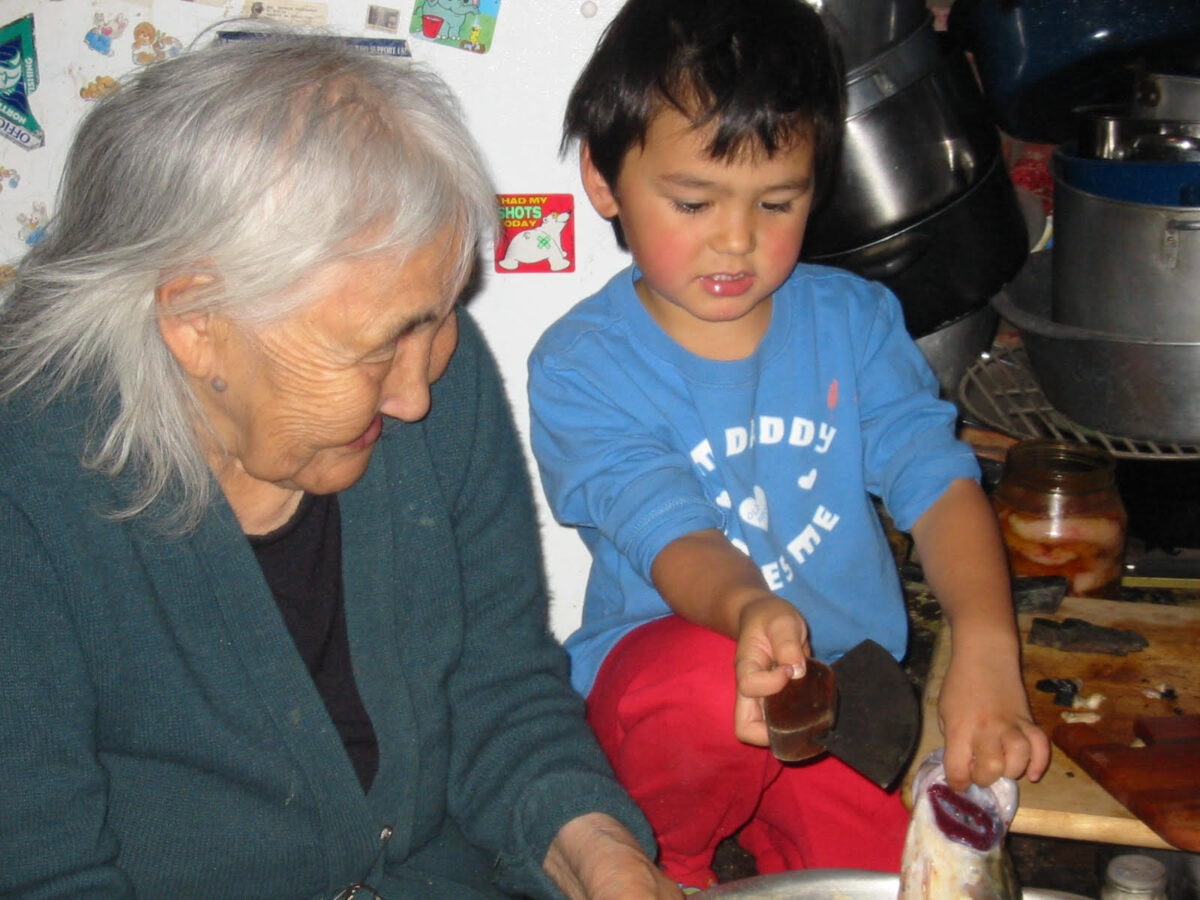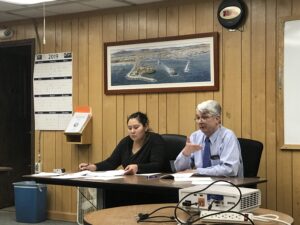A man with strong family ties to Gambell and the Kenai Peninsula has been recognized for his commitment and dedication to Native cultural pride and identity.
Sam Schimmel, 23, is an Indigenous youth advocate who is Siberian Yupik and Kenaitze Indian.
Schimmel was the inaugural recipient Friday of the Autumn Apok Ridley Award, given by the Alaska Native Heritage Center (ANHC), in recognition of his love for Indigenous culture and ways of life, and the work he has done in sharing Native values.
He spent his childhood listening and learning from Elders. His undergraduate college years at Stanford University focused on Earth Systems and Public Policy. He is currently a law student at Georgetown University and plans to work for the Alaska Native Justice Center later this year.
Listening to elders as a youth was one of the most important touchstones in his life, Schimmel said.
“They’re the ones who really taught me how to be Native,” Schimmel said. “They’re the ones who instilled in me the promise of reciprocity, that our communities are based on the idea that our Elders will teach us how to live and how to be. In exchange, when we grow up, we will take care of our Elders and we will pass down that knowledge onto our children so that they will take care of us.”

The survival of Native culture in Alaska continues because of that promise of reciprocity, he said.
“That promise, and that core belief, is what keeps our Native communities together,” Schimmel said. “That’s what has brought us through to where we are. That is what has allowed us to thrive for tens of thousands of years in some of the harshest places on Earth that we call our home.”
In 2021, Schimmel coordinated Operation Fish Drop, a youth-led initiative to provide food security for Native families and Elders during the historic statewide drop in salmon runs and the COVID-19 pandemic.
He reached out to ask ANHC for help distributing more than twelve thousand pounds of salmon to the Alaska Native community. The answer was an immediate yes.
“Some of the greatest stories that you’ll ever hear are told around a table set with indigenous foods,” Schimmel said. “So, when it comes to our subsistence foods, it isn’t necessarily so much about the nutrition that it provides, but about the cultural responsibility that is instilled in that food. The knowledge that somebody in your community went out, or somebody in another committee went out and caught that animal in a way that’s been passed down between generations, since time immemorial, and has brought that into a home.”
The food provided was traditional, nutrient-rich and tailored to subsistence diets. Twenty-five-pound boxes of sockeye salmon were distributed to elders, families and individuals.
Schimmel received instant feedback on how the distribution helped spur cultural knowledge.
“Elders came up and said ‘you know I haven’t had fish in four years … I’m going to teach my grandchildren how to put up fish the proper way … I don’t fish anymore because I’m too old or somebody in my family is sick and we have to take care of them.’ They crave our traditional food; they crave that taste of home,” Schimmel said.
He also relayed a story he heard from an Elder from Western Alaska about how her people only ate caribou. The caribou herds moved north and diminished until eventually there were no more caribou. Because there were no longer caribou, they couldn’t catch enough food to feed their community.
“She said when those caribou left moose came in from the south, and they became moose people,” he said. “They started eating moose and feeding their families with moose. So, as we’re seeing changes happen in the state, we need to fight to make sure that we can continue to access our traditional foods.”
The award is named after the late Autumn Apok Ridley, a former ANHC intern and Alaska Native Gamer, who first learned the Alaska Native Games at ANHC and went on to become a world record holder in numerous Native Games.
Additionally, the Paul Tiulana Elder Award was presented by ANHC to the late Dr. Oliver Aveogan Leavitt (Iñupiaq) of Utqiagvik. Leavitt, a past board member of the Arctic Slope Native Corporation, was recognized for his devotion to public service and his advocacy for the North Slope Iñupiat people.
Image at top: Schimmel is the inaugural recipient of the Autumn Apok Ridley Award. Photo courtesy Jeremy Schimmel.





